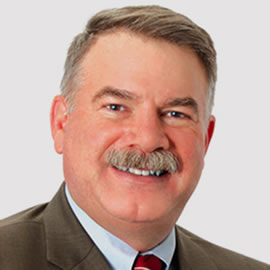“We will never have true civilization until we have learned to recognize the rights of others.” — Will Rogers (1879-1935)
It has been difficult to observe the recent overturn of Roe v. Wade, 410 US 113 (1973), which held that the U.S. Constitution provided citizens the right to choose an abortion. There are few topics as religiously and politically charged as abortion. It is the proverbial “third rail” of dinner conversation and editorialists. It would be safest for both my U.S. Medicine editors and me to avoid this topic at all costs, lest we offend a large portion of our readership. Then again, I can think of few issues more central to women’s health and, therefore, a critical topic that physicians and nurses should be conversant. So, dear reader, if I may be so bold as to have an opinion on this topic, please strap in, because here it comes.
Unwanted pregnancies have been a fact of the human condition from the beginning. First, although not a fan of abortion as a means of birth control, I am a huge fan of personal responsibility (democracies depend on it). I also am pragmatic enough to know that passion and sometimes violence often trumps personal responsibility. Second, as a male, I find my thoughts on the matter rather lame, since the male contribution to pregnancy and carrying a fetus to term is physically inconsequential. As a father of three daughters, I recognize my emotional contribution to pregnancy, but the physical toll of these births was all on my wife’s shoulders. It seems ironic that the preponderance of Supreme Court justices who just overturned Roe are primarily male. Finally, the religious overtones on this issue can be overwhelming. Fortunately, we live in a country that guarantees individuals right to worship (or not) as they see fit. Perhaps more importantly, the Constitution protects me, personally, from being subjected to any religious faction’s “laws and regulations.” Like many readers of this column, I have spent a career defending the right of Americans to worship and believe as they desire. I am even more passionate about the protections the Constitution provides me from said worship and belief.
As parents, my wife and I have made it a point to have open and honest discussions to ensure our three daughters have the best information concerning their bodies and options of reproductive health. We have worked hard (and I believe successfully) to instill in them a sense of personal responsibility for their bodies and the consequences of reckless behavior. I feel physicians, as educators in human health, have an obligation to provide this same information to their patients. I believe children and patients can act in their self-interest when armed with the best available medical science concerning their bodies. In a perfect world, this education would be enough, and the issue of abortion would be a nonissue.
We do not live in a perfect world.
We live in a world where rape, incest and abuse of women are far too commonplace. We live in a world where the best intentions in the relationships between men and women result in consequences that biologically are disproportionately impactful on the female sex. However, since 1973, we lived in a country where women had been sovereign over their bodies and had options regarding their desire to procreate. After centuries of women being forced to accept their lot regarding pregnancy, often at the risk of death from that pregnancy, we had finally evolved to the point where women had the freedom to choose. Unfortunately, the recent Supreme Court decision brings this fundamental freedom into question.
Choice. A word that seems (until recently) so American. As I have noted many times in this column, I believe the code of laws set down in the Constitution regarding personal freedom is more about protecting the individual from the exercise of personal liberties by others that would negatively affect the individual. I have no issue with those Americans who have decided abortion is never an option under any circumstances. That is their choice, and they are free to live with the consequences of that choice. However, I do have a problem when that personal decision infringes on the rights of women to control their bodies. I do not have to like the decisions of other Americans, but I must defend their rights to their own choices. The beauty of the American experiment is we can have vastly different opinions on what is “moral,” yet still exist peacefully (most of the time) in the same country. As we have painfully learned so many times in our collective past, you really cannot legislate morality.
I feel fortunate that my family has the resources to ensure the reproductive health of our daughters, regardless of the Supreme Court decision. I am saddened by those less-fortunate women who now have one more barrier to overcome in managing their health. As a physician, I will continue to provide the best medical science, free of my personal bias (as much as is possible for a human being). This tectonic shift in the legal landscape regarding women’s health will be an issue for federal medicine professionals. I have always worked to keep my personal beliefs separate from my practice of medicine. I have taken the liberty that this column affords me to provide my opinion—mainly that I have no right to tell anyone what to do (especially a woman regarding her reproductive health). This issue will influence the practice of federal medicine. Best prepare.



